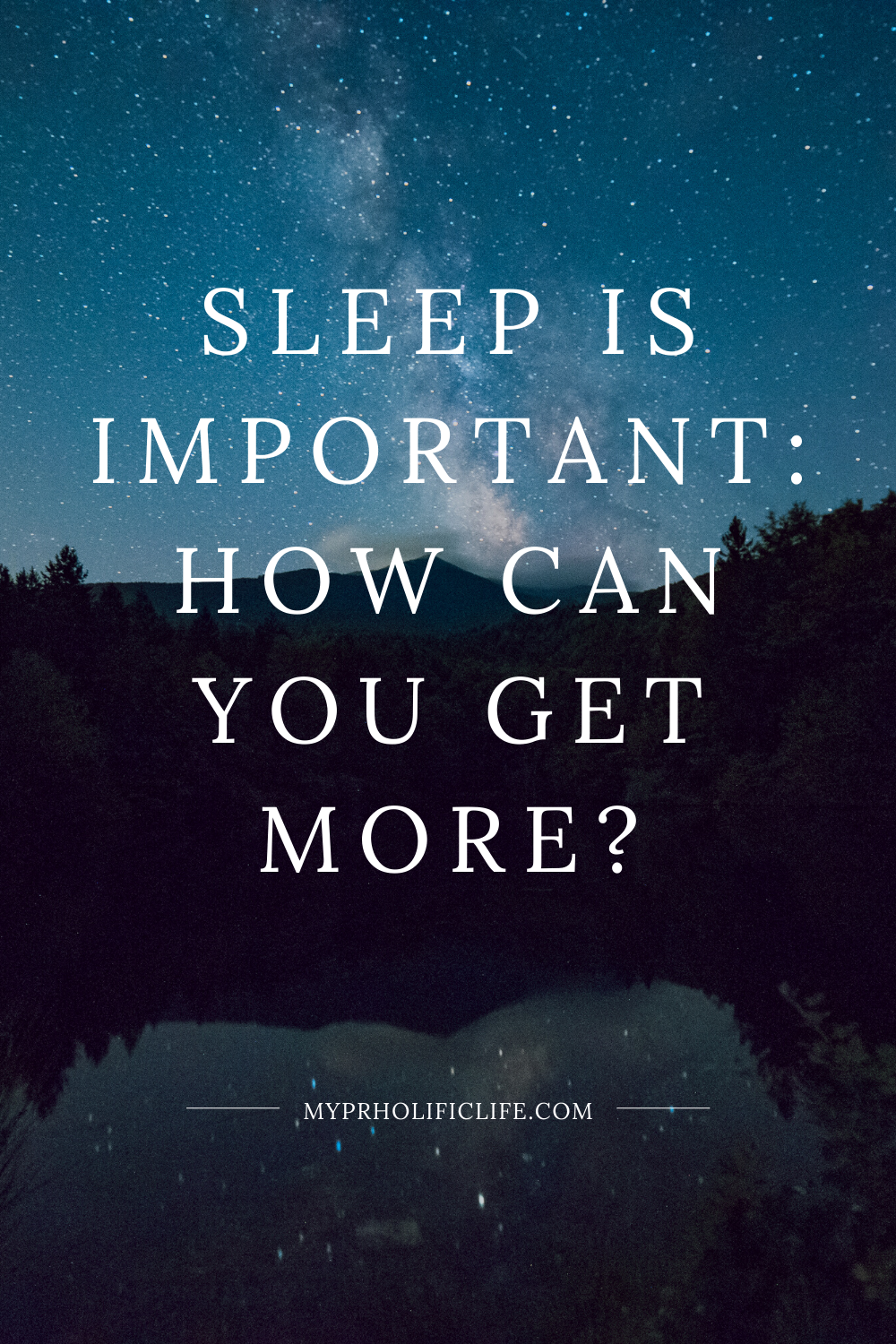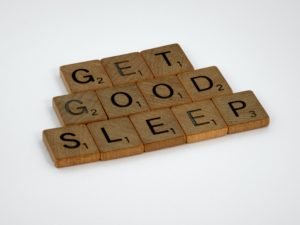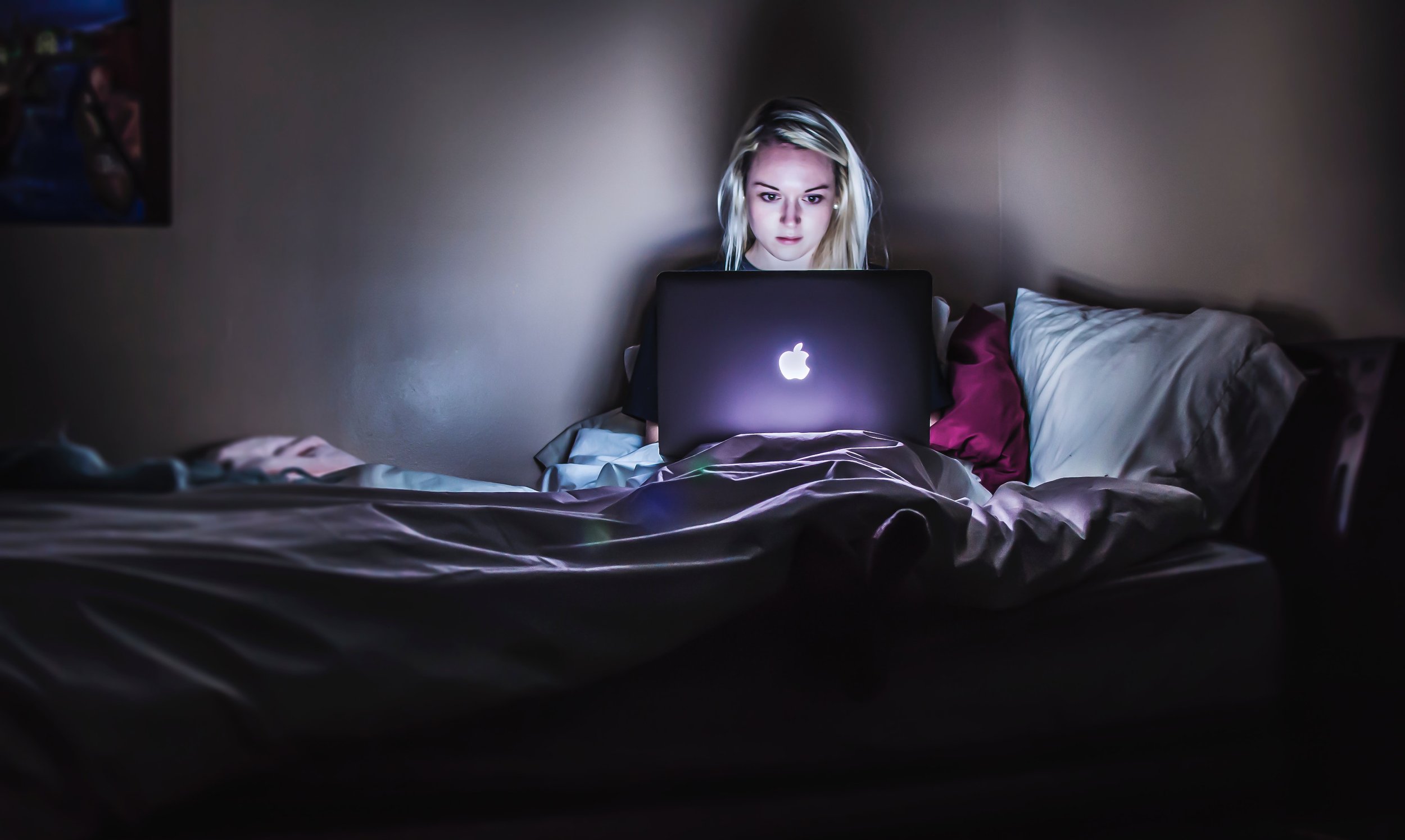Sleep is Important: How can you get more?
Do you get enough sleep? Most people don't, even if they think they do. Sleep is a significant, but often overlooked, part of everyone's overall health and well-being. Bad sleep can be to blame if your diet and exercise habits are on target but you still don't feel or look the way you want. So let's get into why sleep is so important and then we can talk about how to get more of it.
Sleep is important because it allows the body to heal itself and prepare for the next day. Getting enough rest will also help you avoid weight gain, developing heart disease, and prolonging your illness. So first we will go over some signs that you aren't getting enough sleep.

5 signs you aren't getting enough ZZZ's
- Your thoughts are hazy.
- You seem to get sick a lot.
- Your workouts appear to be overly difficult.
- You are unhappy
- You're having trouble losing weight or maintaining weight
While we sleep, our experiences and lessons become imprinted in our minds. Reduced attention and concentration, disorientation, decreased judgment, and forgetfulness are all symptoms of interfering with this process.
T-cells decrease and inflammation increases when we don't get enough sleep, making us more vulnerable to viruses and bacteria, increasing our risk of getting sick, and increasing our risk of heart disease and other inflammation-related ailments.
Sleep allows our bodies to replenish neurotransmitter levels and eliminate energy-draining metabolites. We have lower central nervous system activity, slower reaction times, low energy and endurance capacity, depressed mood, and a reduced desire to exercise if we don't exercise.
We produce new neurotransmitters and control hormone production when we sleep. Interference here leads to a loss of emotional regulation, increased stress, low mood, and an increased risk of depression.
Sleep deprivation has been related to excess body fat because it can affect appetite regulation, make you feel hungrier, and drive you to consume more calories. Excess body fat might also affect sleep quality.

Preparing for a Good Night's Sleep
As strange as it may seem, your journey to better night's rest begins in the morning.
Wake at the right time
If you wake up from a light sleep period, you'll feel healthier and more aware. If you're feeling drowsy, try investing in a device or app that monitors your sleep cycles and wakes you up at the right time.
Be Awakened by Light
This boosts cortisol naturally, which is beneficial in the morning. The gradual ascent makes you feel awake and calm.
Get Moving Right Away
Snooze increases sleep inertia, whereas movement appears to speed up the waking process. Sit up and place your feet on the floor when it's time to wake up.
Find the Sun
Your daily melatonin (sleep hormone) schedule is set by light exposure. This helps your body gear down at bedtime and increases wakefulness during the day. A light therapy box can also be used.
Be Careful of Alcohol and Caffeine
Caffeine consumption after 2 p.m. and/or more than 1-2 drinks in the evening can disrupt deep your slumber..
Exercise
Regular exercise helps to balance your hormone levels, control your fight-or-flight system, and stabilize your body's 24-hour rhythm. However, extreme exercise later in the evening should be avoided. It could make falling asleep more difficult.
Eat a Small to Medium Dinner
It can be difficult to fall asleep if you eat too much. A combination of minimally processed proteins, carbohydrates, and fats can keep you full till morning. Plus, slow-digesting carbohydrates can make you tired.
Limit Fluids
If you drink too much liquid right before bed, you may find yourself waking up frequently to use the restroom.
Clear your Mind
If you drink too much liquid right before bed, you may find yourself waking up frequently to use the restroom.
Go the $%#@ to Bed
Maintaining a consistent bedtime teaches your body when to produce soothing hormones to aid in slumber. Tip: Don't leave it till the last minute. Before 12 a.m., every hour of sleep is worth two hours afterward.
Sleep at Least Seven Hours
The average person requires 7-9 hours of sleep per night. It's fine if you're getting significantly less now. Just take it one step at a time. Even 30 minutes can make a significant effect.

More Tips For You
Start by turning off your electronics. Remove any electronic gadgets from your eyes at least 30 minutes before bedtime. Artificial light disrupts the generation of melatonin, a hormone that promotes deep sleep and may aid metabolism regulation.
Reading, meditation and mild movement (stretching, yoga, walking, sex) can help you de-stress and activate the chemicals that help you relax.
Take a bath or shower. Warm water can help us relax and decompress. Add some magnesium-based Epsom salts, which are believed to aid sleep.
Create a relaxing sleep area. Your bedroom should be calm, tranquil, well-organized, and free of the clutter that might cause tension. If you live in a city, a white noise machine can help you block out the noise.
Set your room to an appropriate temperature. Most people sleep better when the temperature is chilly (about 67 degrees Fahrenheit); others sleep better when the temperature is neutral. What works best for you is to figure out what works best for you.
Make the room as dark as possible. Cover your windows and place your phone facedown to increase melatonin production. To illuminate mid-sleep bathroom trips, use a motion-sensitive or dim night light.
I hope these tips help you improve your quality of sleep. If you need help with your nutrition please check out my Fitness & Nutrition Programs! I would love to help you with your nutrition needs! For exercise ideas check out Workout of the Week.
